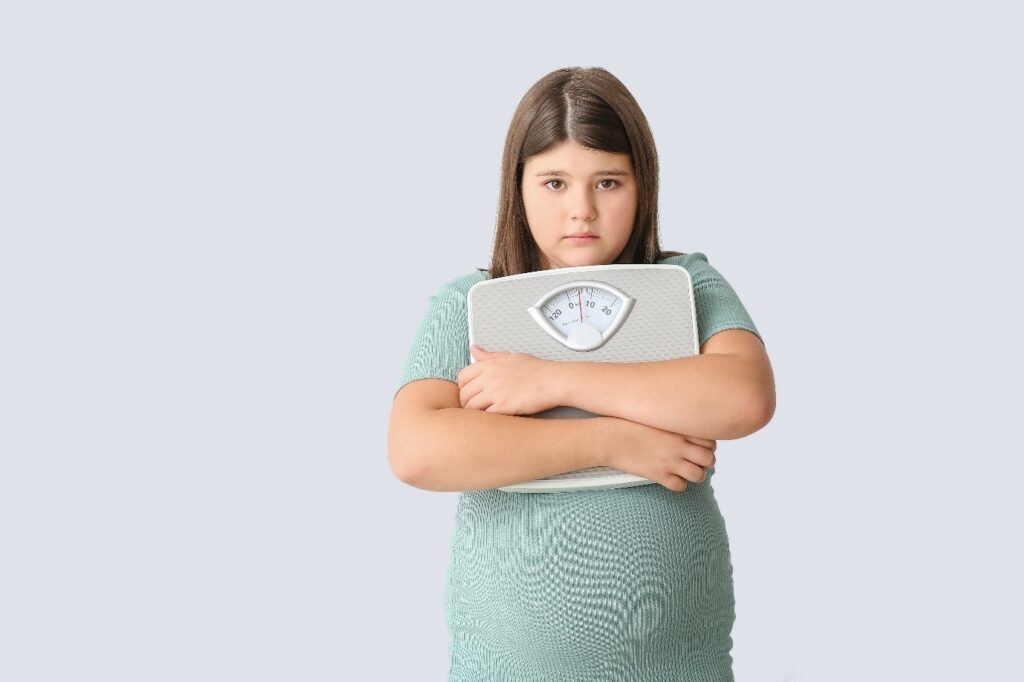Childhood obesity is a growing health crisis affecting millions of children worldwide. It’s no longer just a concern for the medical community but for parents, educators, and society as a whole. With the increasing prevalence of childhood obesity, it is crucial to understand its causes, effects, and, most importantly, how it can be prevented and managed.
What is Childhood Obesity?
Childhood obesity occurs when a child has excess body fat that negatively impacts their health. It is usually measured using BMI (body mass index), which compares weight to height. A child is considered obese when their BMI is above the 95th percentile for their age and sex.
Obesity in children can lead to both immediate and long-term health problems, such as high blood pressure, diabetes, joint issues, and even emotional difficulties like low self-esteem and depression. However, childhood obesity is preventable and manageable with early intervention and a healthy lifestyle.
Causes
It is caused by a combination of genetic, behavioural, and environmental factors. Let’s explore some of the most common causes:
- Unhealthy Eating Habits
One of the main causes of childhood obesity is poor dietary habits. The increased consumption of high-calorie foods such as fast food, sugary snacks, and beverages rich in fat and sugar is a significant contributor to weight gain in children. With easy access to unhealthy food options, children often develop a preference for processed, junk foods over healthier choices like fruits, vegetables, and whole grains.
- Lack of Physical Activity
With the rise of screen time — including television, video games, and mobile devices — Children are spending more time indoors and less time participating in physical activities. The lack of exercise contributes to an imbalance between the number of calories consumed and burned, resulting in weight gain.
- Genetics
If a child has obese parents, they are more likely to become obese themselves. Genetics influence how the body stores and burns fat, making it more challenging for some children to maintain a healthy weight.
- Psychological Factors
Emotional factors such as stress, depression, and boredom can also contribute to overeating. Children might turn to food for comfort, and stress-related eating can lead to an increased intake of unhealthy, calorie-dense foods. Additionally, children who experience bullying or negative body image issues may develop unhealthy eating habits as a coping mechanism.
- Socioeconomic Factors
In many cases, low-income families may struggle to afford healthy, nutritious food, leading to poor dietary habits. Junk food is often cheaper, more convenient, and more accessible than healthy options. Moreover, living in a neighbourhood with limited access to parks or recreational areas can hinder a child’s ability to engage in physical activity.
- Sleep Deprivation
Recent studies have shown that lack of sleep can also contribute to childhood obesity. When children don’t get enough sleep, it disrupts their body’s hormonal balance, increasing hunger and leading to overeating. Additionally, inadequate sleep can result in decreased energy levels, which may reduce physical activity.
Effects of Childhood Obesity
Childhood obesity can have far-reaching consequences for a child’s health, both in the short and long term. Let’s take a closer look at some of the effects:
- Physical Health Risks
Children with obesity are more likely to develop a range of health conditions, including:
- Type 2 Diabetes: Children who are obese are more likely to develop insulin resistance, which can lead to diabetes.
- High Blood Pressure: Obesity is a risk factor for hypertension, which can damage the heart and lead to serious cardiovascular issues.
- Joint Problems: Excess weight puts added strain on the bones and joints, increasing the risk of joint pain and conditions such as osteoarthritis.
- Sleep Apnea: Obesity can lead to sleep apnea, a condition where the airway becomes blocked during sleep, leading to disrupted sleep patterns and fatigue.
- Emotional and Psychological Effects
Childhood obesity can have a significant impact on a child’s emotional and mental health:
- Low Self-Esteem: Children who are obese may face teasing, bullying, and discrimination, which can lead to feelings of low self-esteem and poor body image.
- Depression and Anxiety: The emotional toll of being overweight can result in depression and anxiety, further contributing to unhealthy eating habits.
- Long-Term Health Risks
Obesity in childhood is more likely to persist into adulthood, and the long-term effects can be devastating:
- Heart Disease: Obese children are at a greater risk of developing heart disease, high cholesterol, and stroke later in life.
- Chronic Diseases: Childhood obesity increases the risk of developing chronic conditions such as type 2 diabetes, hypertension, and certain cancers in adulthood.
Preventing and Managing Childhood Obesity
The good news is that childhood obesity is preventable and manageable. Here are some practical steps that parents, caregivers, and society can take to help combat this issue:
- Promote Healthy Eating Habits
Encourage a balanced diet that includes a variety of fruits, vegetables, whole grains, lean proteins, and healthy fats. Limit the intake of sugary beverages, junk food, and snacks high in fats and sugars. Teaching children to make healthier food choices from an early age is essential for preventing obesity.
- Increase Physical Activity
Encourage children to engage in at least 60 minutes of physical activity each day. Activities such as walking, cycling, swimming, and playing sports are fun ways for children to stay active. Reducing screen time and promoting outdoor play can also help children maintain a healthy weight.
- Be a Role Model
Children often mimic the behaviour of their parents and caregivers. By adopting healthy eating habits and being physically active, adults can set a positive example for children to follow.
- Ensure Adequate Sleep
Ensure that children get enough sleep every night. It recommended that children aged 6 to 12 get 9 to 12 hours of sleep per night. Proper rest helps regulate hormones that control appetite and energy.
- Address Emotional Eating
Children may eat for comfort during times of stress or emotional turmoil. It’s important to help children develop healthy coping mechanisms, such as talking about their feelings, exercising, or engaging in hobbies, instead of turning to food for comfort.
- Seek Professional Help
If you suspect that your child is overweight or obese, it’s important to seek guidance from a healthcare professional. A pediatrician, nutritionist, or counsellor can provide expert advice and support to help manage your child’s weight in a healthy, sustainable way.
Conclusion: Take Action for a Healthier Future
Childhood obesity is a serious concern, but with the right approach, it is preventable. By encouraging healthy eating, physical activity, and positive lifestyle changes, we can help our children avoid the health risks associated with obesity and set them on the path to a healthier future.
Don’t wait for the problem to grow! Take action today by supporting your child in living a healthier lifestyle.
Book a consultation with our specialists at Sri Krishna Children’s Hospital to learn more about managing childhood obesity and promoting long-term wellness!

